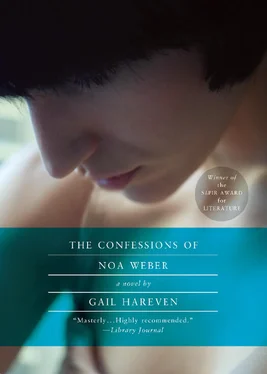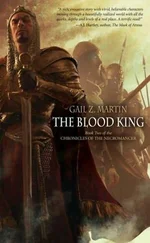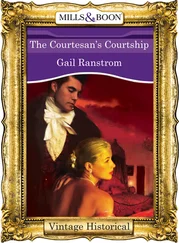Alek was surprised to discover that we couldn’t finish what we had come to do on the spot. The men were sent outside, and I was sent to have a talk with the rabbi’s wife as a necessary preliminary to setting the date.
In the years to come I told the story of this interview countless times, it became part of my anecdotal stock-in-trade, which I polished up from time to time, perfecting the details of the scene, the asides and the timing. Now I’ll be brief and stick to the facts: A short woman with her hair covered in a brown snood greeted me from the other side of a scratched office desk and without any preliminaries began to explain to me what a mistake it would be to bake my husband a chocolate cake every day, even if he hinted that he wanted it and even if he demanded it, because you get tired of even the best cake if it’s served up every day. She reminded me of my mother with her nagging about the proper eating habits—“Chew, Noa, chew before you swallow.”—except that my mother is a thin woman, and this one had a double chin tucked in over a swelling bosom. In my innocence I replied that I didn’t know how to bake, and only when she sighed, and I, suddenly embarrassed without my male support group, stared at the bucket someone had left by the door, only then did I realize what the woman was talking about.
In the face of my surprising naiveté she abandoned the culinary metaphors and asked for details about my menstrual cycle. Was it regular? How long did it last? And when exactly was it due? I thought about the four who were presumably waiting for me outside, about Alek’s impatience, and about what I would have to tell them in a few minutes, and with this to inspire me, as soon as I realized where all these questions were leading, I whispered that there was a problem, you understand, we have a problem because I’m pregnant. That’s why we have to get married as quickly as possible, a quick, discreet wedding … perhaps right here in the Rabbinate? My face burned with a shame whose origins were different from what the rabbi’s wife supposed.
Overflowing with concern she waddled with me to the clerk, who set the date for ten days’ time, right after the holiday of Simchat Torah. “Light Sabbath candles,” she recommended in parting, “forget the past, and explain to your husband that this is the time to make a new beginning and fortify yourselves with tradition. It’s important to him too for his child to grow up like a Jew, why else did he come to Israel? … The mother is the foundation of the home, the wife is the foundation of the home, you’ll see how your husband will respect you when you make him a Jewish home. You’ll make him a Jewish home, and he’ll make you a queen.”
The really crazy joke in this story, the joke I never tell when I’m delivering the shtick, is that while I was inventing my urgent dilemma for the benefit of the rabbi’s wife, the first cells of Hagar were already dividing inside me. And that I didn’t have the faintest idea that I was pregnant.
I LOVED HIM
I loved him and I yearned to marry him. Even worse, I yearned for him to marry me, to take me to be his wedded wife, to sanctify me.
The rabbi’s wife’s double chin, the nagging tone of the clerks, the desks piled with cardboard files, the mop bucket — these details helped me to cover up my true desire for him to single me out to have and to hold, forever. The decor bespoke a seedy bureaucratic secularity, and I welcomed the ugliness. Since the marriage was not a true marriage, it was better this way, I thought, in all the ugliness of reality, in the harsh summer light, without any atmospherics to soften the facts, without any illusions. It was right, it was fitting, I was happy with it.
I loved him. And Alek wasn’t in love with me. And in spite of my youth, I did not give way to the temptation to interpret various gestures of his as possible manifestations of love. I did not count my steps to the refrain of “he loves me, he loves me not, he loves me, he loves me not …” And even when I read between the lines — lovers will always read between the lines, they are never satisfied with the manifest content — I did not deceive myself by discovering signs of a feeling he did not possess. I loved him, and precisely for that reason, I knew that he didn’t love me.
In the nature of things, according to the rules of the game laid down from the start, I did not try to hold seminars with him about the nature of our feelings for each other, their origins and destination. I saw that I aroused his curiosity, I saw that the curiosity and the enjoyment bordered on amusement, and as far as I was able I tried to join in the style of provocative flirtatiousness stemming from these feelings. To behave as if we were brother and sister up to some naughtiness.
It took me years to understand that in Alek’s eyes I, Noa Weber, was the ultimate stranger, foremost because I was a woman. And for all his experience with the members of my sex, to this day he still tends to attribute a kind of alien mystery to us — as if we belonged to a completely different species, governed by incomprehensible inner laws, which a man, however hard he tried to penetrate the mystery, would never succeed in deciphering.
Beyond that — and this was something that was harder for me to understand — not only were we from different cultures, but he was the immigrant and I was the “WASP.” Not just a WASP, but a descendent of the “Mayflower” in Israeli terms, forty-eight on my father’s side, the pioneers of the early twenties on my mother’s side. Which in itself was a reason for curiosity and investigation.
But nevertheless, in spite of the strangeness, it was clear to me that the cloak of naughty flirtatiousness I wore and the ideological reasons I spouted, did not deceive him. Alek knew that I was possessed, he knew it very well, and he chose to marry me nevertheless. Why did he do it?
Twenty, no, nearly twenty-one years later, the first time I went to visit him in Moscow — Hagar had already completed her army service — it happened that I asked him. In January one of the European newspapers he worked for sent him to write a series of articles on the upheavals in Russia, and Alek invited me to join him, and we were there together for a whole week.
One night I was standing in the hotel opposite the wide window sill, drunk with sex, sleeplessness, and vodka, and looking down from the thirty-sixth floor at the configurations of the cracks in the ice on the river below. Alek had parted the heavy curtains for me, climbed up, and opened the upper section of one of the tall double windows, and the icy air cleared my breathing body.
From the moment I had landed, my sense of distance had gone haywire, and at that moment it seemed to me that I could have put out a finger and touched the cracks in the ice, or the white marble of the parliament building on the other side of the river and the six-lane road. Something opened inside me, something opened and spread and adapted itself to the vast dimensions of the place. Alek lay on the bed behind me and smoked. I was electrified, I had wings, I was too awake even to lie down beside him. The height stimulated me. And ghosts of previous guests in the Stalinist tower, people who were once alive and were now dead. The privileged of the regime. The dead man on holiday who hung his suit up in the closet, the dead man who sat writing opposite the mirror, the dead man who, like me, dried his wet stockings in the bathroom — who were they? What nightmares did they have here on this bed? What nightmare did they imagine in detail when they were awake?
I thought: If somebody pushed me out of the window now I wouldn’t fall. Weightless, I would glide over the city like a bird.
There is a pose that may well only exist in old movies: a man and a woman exchange important declarations while standing not face to face, but face to elegant back. If I’m not mistaken, a lot of the dialogue in Casablanca takes place this way, and I apparently had a romantic echo of that kind in my head when I asked Alek: “October ’72 … I didn’t ask you then, but why did you propose marriage to me?” I imprisoned the cold air inside me until he answered me, and when he answered I could hear the smile in his voice. “Maybe I wanted to see how far you would go with it.” It was clear that he wasn’t talking about my politics. “Did you have any doubts?” I asked.
Читать дальше












